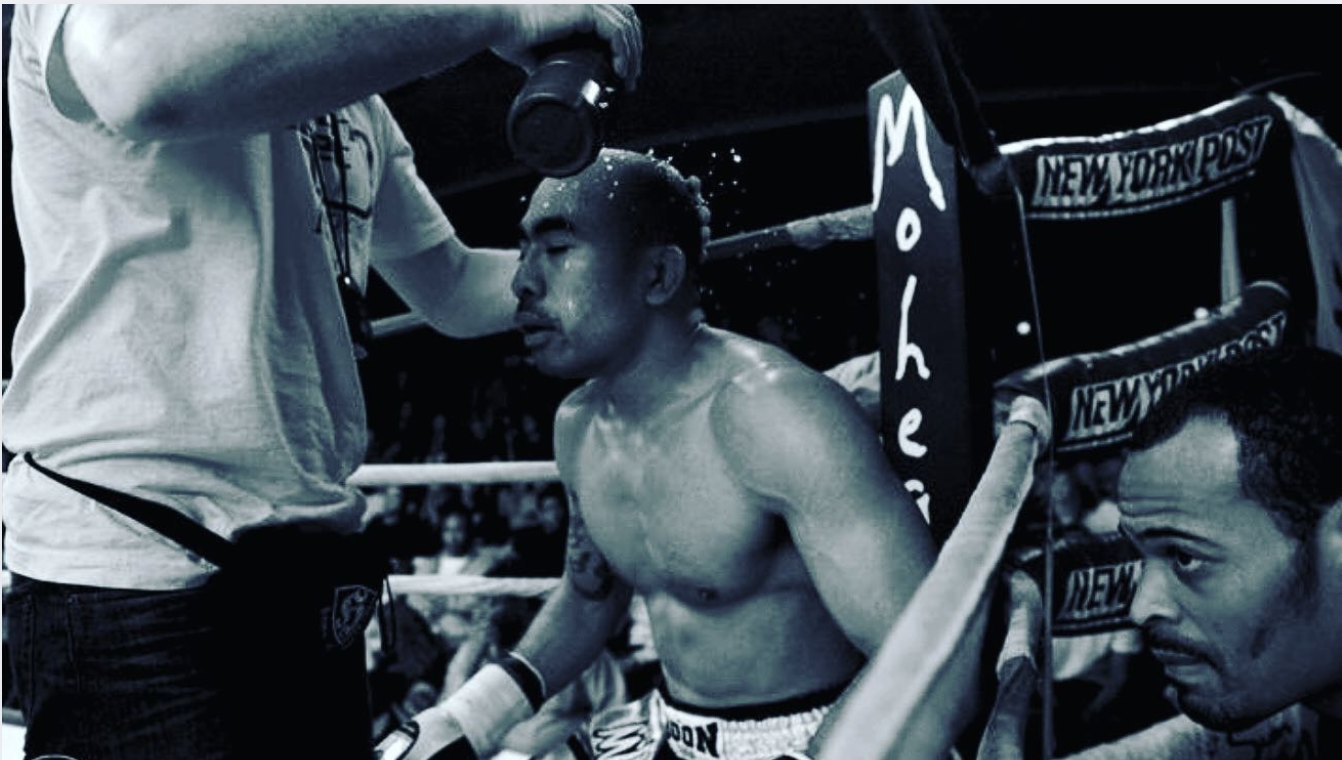Desperation vs. Discipline: A Lesson in Performing Under Pressure
May 02, 2025
When Plans Fall Apart, Discipline Holds the Line
I’ve had fights where everything went to plan. And I’ve had fights where the plan blew up in my face within the first 30 seconds.
One of the most important lessons I’ve learned—both in the ring and in life—is that how you respond in those moments determines everything.
The flashy highlights might come from knockout punches or big wins, but resilience is built in the uncomfortable moments, when things aren’t going your way and you’re forced to choose: panic or adapt?
Let me take you inside two fights. Same preparation. Same corner. Completely different outcomes.
Fight #1: Desperation in Disguise
It was my seventh pro fight. My opponent was a seasoned fighter—over 30 professional bouts and legit Muay Thai experience straight out of Thailand.
But I felt ready. My team had done the research. We had the strategy mapped out. I was locked in.
Then, he stepped into the ring… wearing MMA trunks.
That tiny detail threw me. In the world of fighting, it was like showing up to a chess match and realizing the other guy plays by a completely different rhythm. I instantly knew this wasn’t what we had trained for.
He was awkward. His rhythm was unpredictable. His pressure felt different than anything I’d experienced.
And instead of adjusting, I doubled down on what wasn’t working. I started throwing harder, looking for that one knockout shot. I stopped thinking clearly. I let frustration lead the way.
In the fourth round, I saw what I thought was my shot. I telegraphed a desperate uppercut—and walked right into a counter. Lights out.
Fight #2: Discipline Under Fire
A few months before that, I had faced another intimidating opponent—taller, rangier, and out of the same well-respected gym.
He was 6'4". I’m 5'9". You do the math.
Our plan was simple: attack the legs, close the distance.
Problem was… he checked everything. Every time I stepped in, I paid the price. I even ate an illegal knee in the clinch. It was rough.
But this time, instead of panicking, I focused on what was working—a clean right hand to the body. Not flashy, but effective.
Between rounds, my coach said one thing: “Go back to the body.”
So I did. First shot landed clean. Second one made him grunt. Third time, I faked low and went high—overhand right. Boom.
Fight over. TKO.

What Changed?
In the first fight, I chased the win. I got desperate and emotional.
In the second, I adapted with discipline. I trusted the fundamentals. I didn’t abandon the plan—I evolved within it.
That’s the difference between desperation and discipline.
Desperation says, “I have to fix this right now.”
Discipline says, “Stick with what works. Stay composed. Stay sharp.”
Why This Matters Beyond the Ring
You don’t have to be a fighter to understand what it’s like to walk into a situation thinking you’ve got it all figured out—only to be blindsided.
A career pivot that’s not going how you expected. A leadership role that suddenly feels too big. A negotiation or deal that starts falling apart mid-call.
The business world is full of moments where your “opponent” throws something unexpected at you. And like in fighting, you can’t always rely on the original plan.
So what do you do?
You lean on discipline.
You fall back on your training.
You listen, adapt, and stay grounded in the fundamentals.
Discipline Beats Desperation—Every Time
According to TalentSmart, 90% of top performers are skilled at managing their emotions during high-stress situations. That’s no accident. The ability to stay calm and collected isn’t just a soft skill—it’s a competitive advantage.
In my career, the people who last—whether in business or combat—aren’t always the flashiest or the loudest. They’re the ones who can take a hit, adjust, and still move forward with intention.
So Here’s Your Real-World Fight Plan
When pressure hits and uncertainty shows up:
- Return to the fundamentals – What do you know works? What’s in your control right now?
- Stay emotionally aware – Notice when you're sliding into desperation mode.
- Adjust without overreacting – Discipline doesn't mean doing the same thing blindly—it means evolving with composure.
Final Takeaway: Train for the Chaos
Life won’t always follow your blueprint. The ring taught me that early—and often.
You can prepare, plan, and strategize… and still get hit with something unexpected.
The question isn’t whether it will happen.
It’s whether you’ll stick with what you’ve trained—or throw it all out in a moment of fear.
Discipline keeps you dangerous—even under pressure.
Want more real-world strategies to stay sharp under pressure?
Grab the free Resilience Report → chrisromulo.com/resilience

